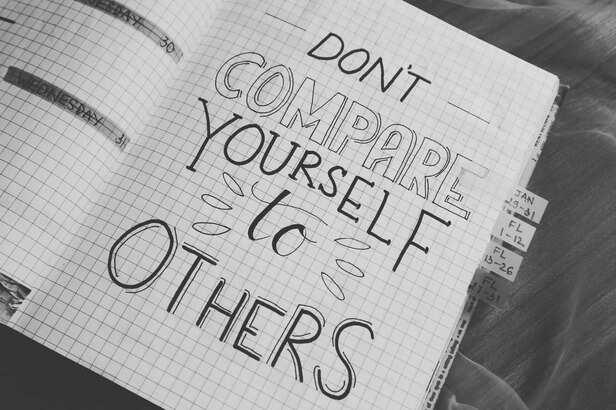Once upon a time, I believed that respect at work accumulated just like coffee rewards—putting in long nights fueled by caffeine meant accumulating more respect. Or so I thought. Turns out, this idea was incredibly off base; it deserved an entire "before" scene of its own. Picture this: staying up until midnight answering emails, agreeing to take on every new assignment as though starring in "The People Pleaser Show," and finding everything hilariously amusing when my colleague made yet another less-than-amusing spreadsheet-related quip. That didn’t make sense then, either.
Now fast forward to today: here I am, enjoying a cup of tea with the calm demeanor of someone who could be running their own company from afar. This isn't due to newfound aloofness or superiority complex. Instead, it stems from uncovering wisdom that has stood the test of time: Chanakya Niti.
1. Quiet Strength Surpasses Proclamation

Do not disclose your intentions, but seek prudent advice to keep them confidential while remaining resolute in carrying out your plans. Translation? Stop narrating your every task like a cooking vlog. You don’t need to update the world every time you fix a spreadsheet or come up with a decent idea. Just... do it. Quietly. Casually. Like it cost you nothing. When people ask how it all got handled, tilt your head slightly and say: “Oh that? Yeah, I took care of it.” No big deal. (It was a very big deal. But we’re not here for Oscars, remember?)
Chanakya understood that power does not announce itself through clamor; rather, it operates stealthily and silently—calmly, strategically, and methodically. You do not have an obligation to put on a show for anybody. Instead, what you owe yourself is the commitment to progress with concentration, devoid of urgency. Esteem follows when others realize they did not hold sway over your advancement—they noticed that regardless of whether or not they paid heed, you continued steadily, either way.
2. Talk as Though You’re Not Trying to Persuade Anyone, Since You Aren’t

A person shouldn't be overly truthful. Straight trees get chopped down first, and honest individuals face trouble initially. Have you ever found yourself in a meeting where someone talks incessantly just to assert their presence? It feels like even the presentation slides want relief from their monologue. Imagine instead, delivering one concise, insightful statement calmly and quietly. Suddenly everyone stops and takes notice; perhaps another attendee jots your comment down, while others murmur thoughtfully—a silent ovation in office terms. You haven’t spoken excessively but have contributed meaningfully. People start viewing you anew. Influence doesn’t come from speaking more often; rather, it stems from choosing when to remain silent.
This message isn't encouraging deceit; rather, it cautions against disclosing too much of yourself where such revelations will go unappreciated. In professional settings, being judicious with your insights is wise. Not every viewpoint requires expression, nor does each strategy demand disclosure. Choose your moments to talk wisely so they carry weight. And when you opt for quietness, ensure it conveys substance instead of emptiness.
3. Confidence Isn't Boisterous; It Simply Exists

The aroma of flowers travels only with the wind, whereas the virtue of an individual permeates in every direction.
True confidence emerges when everyone else is panicking during a meeting; instead of joining them, you calmly sip your coffee as if thinking, "Wow, this is intense." You remain unshaken, steady, and avoid making grand promises to resolve everything immediately. Instead, you stay tranquil and collected, exuding an air of knowing exactly what will happen—usually turning out in your advantage. Chanakya did not raise his voice nor succumb to fear; he strategized meticulously. This kind of strategic mindset commands great respect.
There's no need to exhaust yourself trying to demonstrate how good you are. Just like a flower doesn’t strive to spread its fragrance—it naturally does so without effort—and only reaches whom it should. Make sure your work, dedication, and principles come from authenticity rather than showmanship. Those who truly value such qualities will notice them. As for others who fail to appreciate this—well, they were never intended to recognize their worth anyway.
4. Avoid Being the Office Mascot; Aim to Be the Office Norm

“Before beginning any task, pose these three inquiries to yourself—Why am I undertaking this, what could be the outcome, and will I achieve success? Proceed only after thorough reflection and receiving convincing responses.” You don't need to agree with everything. Just because you're younger, newer, more reserved, or not as "bro," you shouldn't feel pressured to overdo it. Respecting others isn't about being always available; it stems from having authority. Authority appears when:
Saying "I don't believe this is the most effective method" with ease.
Disabling Slack notifications outside work hours and not feeling apologetic about it.
Avoiding the send of a "checking back" email just 37 seconds after the initial one.
Limits draw people’s focus. Plus, you retain your integrity. Chanakya advises us to take a moment. Not all pressing matters hold significance. Genuine strength is subtle—it contemplates before acting, ponders before responding. Once others observe your composure under stress, deliberation in choices, and resilience against distractions—they start to value your company.
5. Never Aim to BeLiked; Strive for Respect Instead

Examine a servant when he is performing his duties, support a relative during hard times, stand by a friend in distress, and comfort a wife in her sorrow.
It's simple to gain popularity; just chuckle at poor jests, always exceed expectations, and feign great interest in another person’s travel photo display. However, earning respect is an entirely distinct challenge. Respect comes when you can voice dissent without turning into a menace. It allows you to decline something without feeling guilty. You have the option to exit uncomfortable situations without slandering others. When you command respect, people understand this: your purpose isn’t merely to win affection but to become irrefutable.
Not everyone values you for who you truly are; some may only appreciate what they can gain from you. True respect isn’t shown during success but rather through adversity—when you’re no longer achieving. Take time off, rest, decline offers, and notice those who continue treating you honorably. Chanakya’s teachings instruct us to be observant beyond mere participation.
6. Think Long-Term

Education is the finest companion. A knowledgeable individual garners respect everywhere they go. Knowledge surpasses both beauty and youthful vigor.
Short-term validation can be quite addicting—likes, compliments, and casual praises like "great work!" But long-lasting respect? That's when individuals value your input so much they ask for it even when you're absent. It's when your name surfaces in discussions you weren't aware of. This kind of recognition blossoms when you cease merely impressing and begin commanding presence through who you truly are. While some might exhaust themselves chasing fleeting approval, you focus on crafting a lasting impact with each steady, elegant, and composed action.
Ultimately, your influence depends solely on the strength of your mind—not your qualifications, nor your position, but rather your comprehension. How attentively you listen, how thoughtfully you react, and knowing precisely when to intervene or step back. Genuine regard cannot be coerced; it’s attracted to profundity. Develop your intellect not for the purpose of winning over others, but ensuring that neither their praise nor criticism can unsettle you. Aim to become an individual whose esteem stems from logic, not hierarchy.
